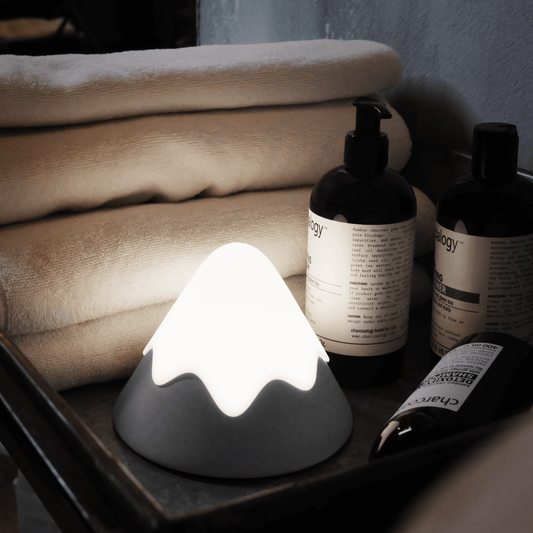Have you ever noticed that you tend to feel more awake and energised during the day, and more tired and sleepy at night? This is because of your body's natural internal clock, known as the circadian rhythm.
Our circadian rhythm is a 24-hour internal clock that is present in most living beings. It regulates various physiological processes, such as sleep, body temperature, and hormone production, in response to the changes in light and dark in the environment.
In this post, we will explore what the circadian rhythm is, how it impacts our daily lives, and how we can support and maintain a healthy circadian rhythm.

What is the Circadian Rhythm?
The circadian rhythm is a natural, internal process that regulates our sleep-wake cycle and other bodily functions. It is controlled by a part of the brain called the suprachiasmatic nucleus (SCN), which receives information about light exposure from the eyes and uses this information to coordinate the release of hormones and other signals that help regulate our body's functions.
The circadian rhythm is influenced by environmental cues, such as the daily cycle of light and darkness, and it plays a crucial role in determining when we feel awake and when we feel sleepy. It is also involved in the regulation of many other bodily processes, such as body temperature, hormone levels, and metabolism.
How Does the Circadian Rhythm Impact Our Daily Lives?
The circadian rhythm has a profound effect on our daily lives. It helps to determine when we feel most alert and energetic, and when we feel tired and ready for sleep. Disruptions to the circadian rhythm can lead to a range of problems, including difficulty falling asleep and staying asleep, fatigue, and increased risk of certain health conditions.
For example, shift workers and people who frequently travel across time zones often experience disrupted circadian rhythms, which can lead to sleep problems and other health issues. On the other hand, maintaining a regular circadian rhythm can help improve sleep quality and overall health.
Supporting and Maintaining a Healthy Circadian Rhythm:
There are several steps you can take to support and maintain a healthy circadian rhythm. These include:
-
Getting regular exposure to natural sunlight during the day: Natural sunlight helps to regulate the circadian rhythm by providing information to the SCN about the time of day. Try to get outside and expose yourself to sunlight for at least 30 minutes each day, ideally in the morning.
-
Avoiding bright light at night: Exposure to bright light at night can disrupt the circadian rhythm by sending signals to the SCN that it is still daytime. To support a healthy circadian rhythm, avoid exposing yourself to bright light from screens (such as TVs, computers, and smartphones) and other sources (such as bright lamps) for at least an hour before bedtime. Instead, use dim lighting or candles to create a relaxing atmosphere that will help you wind down and prepare for sleep.
-
Establishing a regular sleep schedule: Going to bed and waking up at the same time each day can help to reinforce the circadian rhythm and improve sleep quality. Aim to stick to a regular sleep schedule, even on weekends and holidays, to support a healthy circadian rhythm.
-
Creating a relaxing bedtime routine: A relaxing bedtime routine can help to prepare your body and mind for sleep. This can include activities such as taking a warm bath or shower, reading a book, or practicing deep breathing or meditation. Avoiding caffeine, nicotine, and alcohol in the evenings can also help to support a healthy circadian rhythm.
In conclusion, the circadian rhythm is a natural process that helps to regulate our sleep-wake cycle and other bodily functions. Disruptions to the circadian rhythm can lead to sleep problems and other health issues, but there are steps you can take to support and maintain a healthy circadian rhythm. By getting regular exposure to natural sunlight, avoiding bright light at night, establishing a regular sleep schedule, and creating a relaxing bedtime routine, you can help to improve your sleep quality and overall health.




















